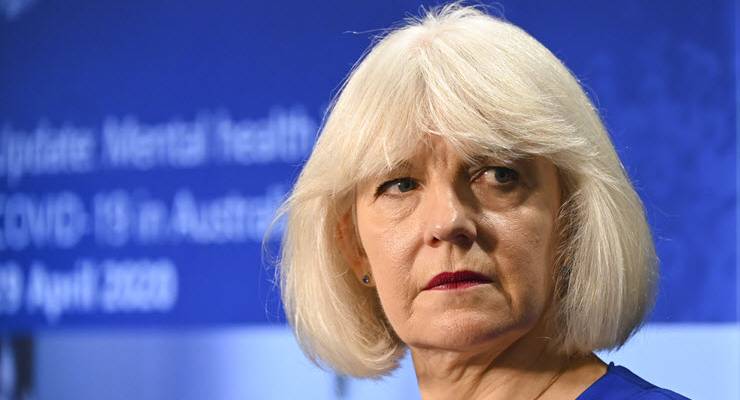
There’s been a lot of talk recently about how tough this COVID-19 business is for people with mental health issues, fears about exacerbation of anxiety and depression, a possible spike in suicides.
And sure, there are good reasons to be concerned, but make no mistake — life is always tough for people with any sort of mental health problem.
It’s not as if they’ve been taken from some psychiatric utopia and now been hurled into the abyss. Despite all our knowledge and resources, despite being one of the wealthiest societies in the world, our services in mental health have long been underfunded and sub-standard.
Chair of Victoria’s Royal Commission into Mental Health, Penny Armytage, has said that “the calling of this royal commission is … an acknowledgement that the mental health system is broken”.
And that was before the pandemic.
So how have our psych patients coped? Not surprisingly, there’s no uniform answer, but after these first couple of months, some important experiences have emerged.
There is no better driver of anxiety than uncertainty, and COVID-19 has delivered massive doses of uncertainty. No wonder, then, that anxiety has been prominent for many people in these unprecedented times (bugger, promised not to use that word ever again. Consider wrist firmly slapped).
If all of us are being urged to be careful about infection — everywhere, all the time — how does that feel for someone with an anxiety disorder? Particularly for someone with obsessive-compulsive disorder (OCD), where germophobia and excessive hand washing were already top of their hit parade of disabling symptoms.
A patient of mine is self-isolated with her adult son, whose anxiety has always bordered on OCD. She now describes how a brief outing can result in him experiencing a whole day of anguish. Did he touch that railing, then touch his face? That woman who ran past him on the footpath, panting — could he have inhaled a fatal dose of COVID-19?
His mum tries, she explains. She invokes the deity Norman Swan, but there is no Coronacast cure. Information and reassurance are impotent against the pernicious beast of anxiety.
For some people with depression, self isolation is their way of coping. Shut the door, phone off the hook, hide under the doona. It can help for a while, but the risk is being sucked into a vortex of despair.
Get out, we say, get fresh air and exercise, meet people, connect. That’s hard enough to do when their motivation and self worth are rock bottom. A touch harder when they’ve been told that the solution is forbidden.
I see a lot of patients with complex schizophrenia. To survive with this illness, they need resilience by the bucket load. They are a group I have huge admiration for. “This is nothing new, I’m always isolated,” has been said to me on several occasions over the last few weeks. “Now maybe others are getting a taste of what my life is always like.” Insight and empathy via pandemic — it’s a sobering thought.
COVID-19 hasn’t stopped us dishing out scripts for psychotropic meds (who said the fax was dead?), but what about the thinking-talking therapies? Therapists have long used platforms like Zoom for certain homebound or distant patients, but we’ve always assumed that the best talking cure is done face to face.
One therapist told me she expected her work to be decimated by the pandemic, but has found that virtually all her clients (therapists mostly have clients, not patients) have accepted the migration to online therapy. It’s not perfect, but it works.
Others have told me that, while they might still be able to do formal treatments like cognitive behaviour therapy (CBT), they are also finding benefits from the more simple act of support. Making contact with their clients, checking in and keeping them in mind, is therapeutic in its own right.
The system might be broken, but those within it are hanging in there, even if only just, and by their ragged, torn fingernails. Let’s make sure that post-COVID-19 we do something more than just slap a few bandaids on the system and consider it job done.
For anyone seeking help, Lifeline is on 13 11 14 and Beyond Blue is 1300 22 4636.







Crikey is committed to hosting lively discussions. Help us keep the conversation useful, interesting and welcoming. We aim to publish comments quickly in the interest of promoting robust conversation, but we’re a small team and we deploy filters to protect against legal risk. Occasionally your comment may be held up while we review, but we’re working as fast as we can to keep the conversation rolling.
The Crikey comment section is members-only content. Please subscribe to leave a comment.
The Crikey comment section is members-only content. Please login to leave a comment.